My Reading List app tells me I’ve read 60 books during this pandemic year, starting with Monique Roffey’s Archipelago in early January through Dionne Brand’s A Map to the Door of No Return and Kim Stanley Robinson’s The Ministry for the Future more recently. I’ll may well knock another couple off before the year finally turns, but I thought I’d highlight my half-dozen-plus favs. 2020 was such a bad year in so many ways — but a good year for reading!
Roughly in the order in which I read them —
Craig Santos Perez, Habitat Threshold — I eagerly devoured this book of wise & witty eco-poems early in pandemic-time, and ended up sending a copy as a gift to my then-newborn nephew who I’ve still not seen outside Zoom-topia. Baby Ford Sterling won’t be able to read these poems for years, but I also shared them with my Global Lit students this past fall. They loved Perez’s voice from Oceania, and I got some great writing in response to these poems.
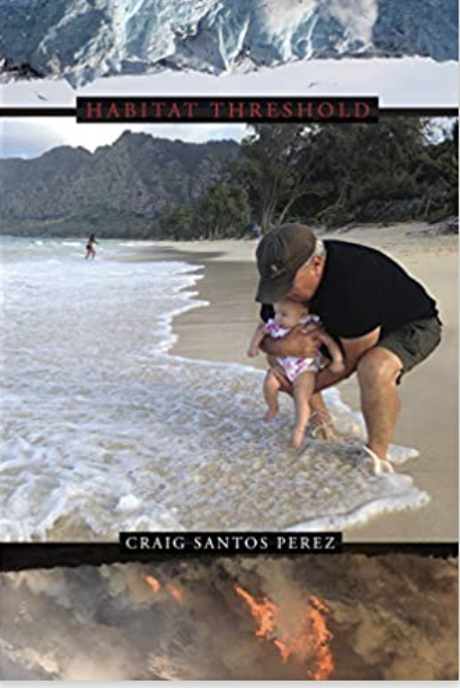
Dinah Lenney, Coffee — It was a strange year to have a book come out, but having my Ocean in a cluster of new Object Lessons with Dinah Lenney’s Coffee, Erik Anderson’s Bird ,and a few others made the Zoom publicity events lively and fun. Coffee is a wonderful romp, half a memoir plus a moving hymn to the ways this bitter morning brew shapes global history and family feeling. It was one of about a half-dozen books of 2020 that I downed in one sitting’s gulp!
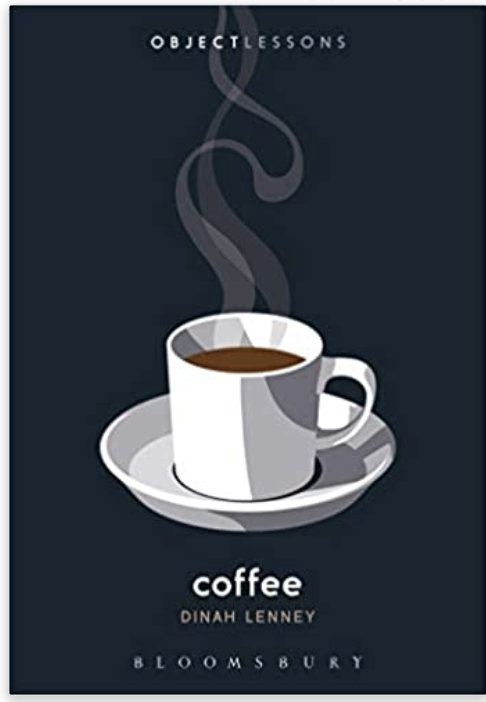
David Gange, The Frayed Atlantic Edge: A Historian’s Journey from Shetland to the Channel — I’m always on the lookout for experiments in academic writing that make our connections to the past more visceral, but David Gange’s gambit — writing a history of the Atlantic facing coast of Scotland, Ireland, and England by narrating a solo kayaking trip through every cove and inlet — was extreme even by my standards. I blog-reviewed it back in May, thinking about “kayak Romanticism” and the possibilities of an Anthropocene sublime.
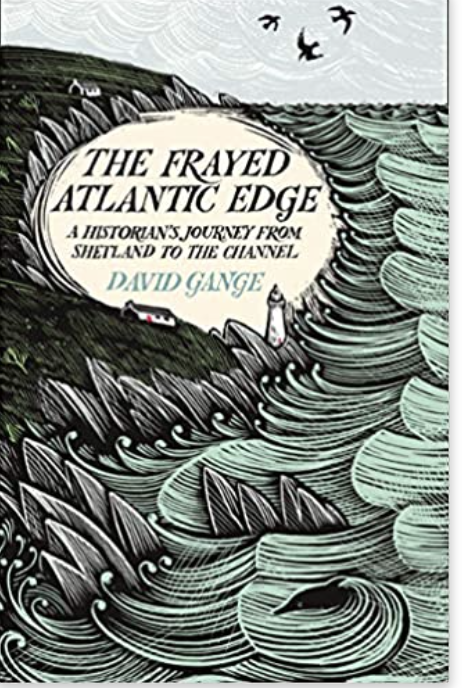
Bathsheba Demuth, Floating Coast: An Environmental History of the Bering Strait — The other brilliant work of narrative environmental history that I loved this year was this account of the ecology of the Bering Sea. The book artfully weaves together human stories from the USA and USSR with the nonhuman lives of whales, caribou, and walruses, among other environment-shaping actors. The genius of this account frames all its actors, from humans to animals to the ocean currents and seasonal advance and retreat of sea ice, as contributors to energy flows, shaping and shaped by global climate change. I’ve not been back to Alaska since the 1990s, though I spent a fair amount of time up there in those years, including working on the cleanup of the Exxon Valdez oil spill in the summer of 1989, right after I finished college. Demuth’s lyrical academic prose — that need not be an oxymoron! — reminds me of what I love about northern extremes.
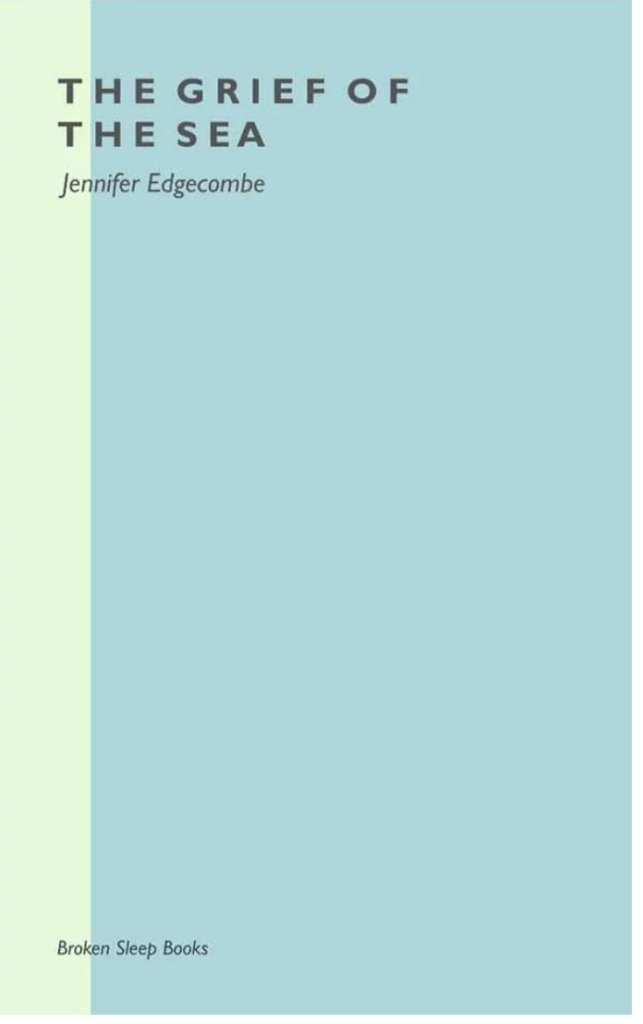
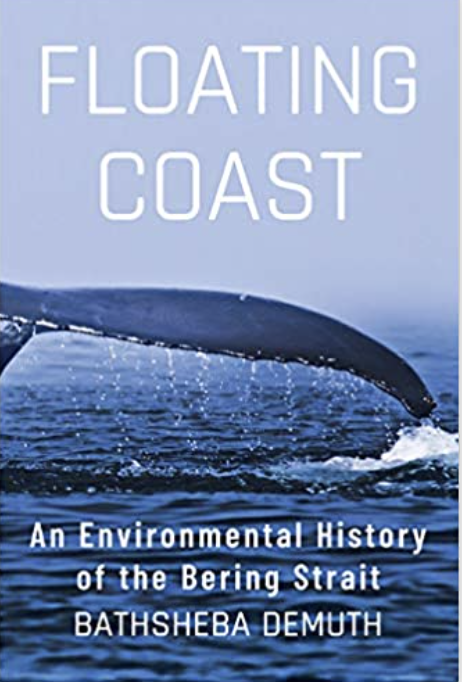
Jennifer Edgecombe, The Grief of the Sea — I read, and also wrote, more poetry during this year of lockdown than probably any other year of my life. One of the strange pleasures of the pandemic was joining the Sonnet Corona Project on Facebook and contributing to a dozen coronas, which are “crowns” of fourteen connected sonnets. I also started digging into more new poetry, including, as you might expect, sea poetry. Jennifer Edgecombe’s gorgeously lyrical chapbook of shipwreck poems is one of the ones that has stuck with me. “The dark is the sea,” she opens the volume, “that has soaked through, / dripping into buckets already full –“
Claudia Rankine, Just Us: An American Conversation — The first poem I assigned to all of my classes this past fall was Claudia Rankine’s “Weather,” published in the New York Times in June in the immediate wake of the Black Lives Matter protests that rocked the USA this spring. My students were dazzled, and inspired, by her combination of artistry and close attention to the materials of everyday life. It’s like we’re living in a poem, one said! I carried that familiarity with me to her most recent book of experimental essays and prose poems about white privilege, the pressures of racism in daily life, and the transformative power of art. She’s one of the great poetic witnesses to our days.
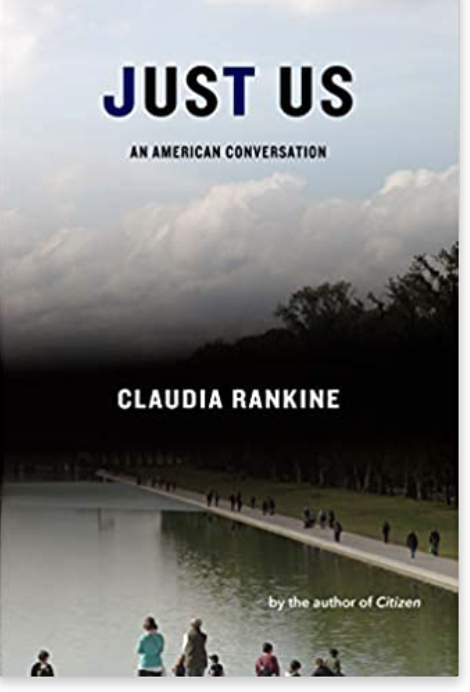
Rebecca Giggs, Fathoms: The World in the Whale — I sipped from this gorgeous, dense volume for what must have been months, spacing deep dives into these chapters about whales in and beyond history in between my magpie reading practices. Giggs writes with beautiful intensity and precision, and the opening depiction of a stranded whale in Perth remains alive and pungent in my imagination. She’s a voice to listen to!
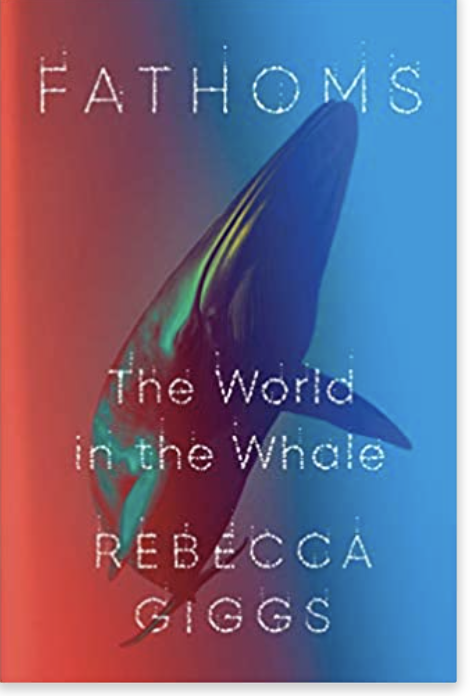
Those are my more-than-a-half-dozen favs for 2020. So many other great books this year, including Bonnie Tsui’s Why We Swim, about which I wrote in Public Books, the latest strange parable-novel by J.M. Coetzee, my own deeper dives into the poetry of Alice Oswald and W.S. Graham…
We’re all hoping for a 2021 with more people, more travel, and more open-ness. But I hope still with lots of great books!